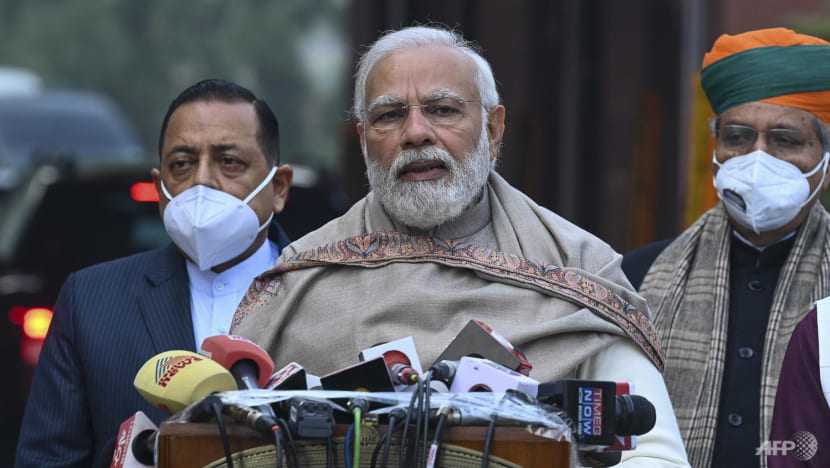What is at stake for PM Modi in India’s bellwether state
09 February, 2022

A month-long election in India’s most populous state will test the popularity of Prime Minister Narendra Modi and his ruling Bharatiya Janata Party amid rising unemployment, inflation and a third wave of COVID-19 infections.
Voters in Uttar Pradesh will start going to the polls on Feb 10, with ballots to be counted on Mar 10.
Four smaller states - Punjab, Uttarakhand, Goa and Manipur - will also elect new legislatures over the same period.
But holding on to power in Uttar Pradesh is especially crucial for Modi’s ambition to win a third consecutive term in the 2024 national elections.
WHY DOES UTTAR PRADESH MATTER SO MUCH?
With a population of about 230 million people, the state is a bellwether of the national mood.
Winning the local polls resonates beyond the province. In addition, the state has a lot of farmers, providing a reading from that important bloc. The state also has outsize importance in the federal parliament, with lawmakers from Uttar Pradesh accounting for 80 of the 543 seats in the lower house, more than any other state in India.
WHAT’S AT STAKE?
Possibly Modi’s policy agenda for the next two years.
His popularity ratings have recovered from a sharp drop after last year’s brutal second wave of coronavirus infections.
However, the image he has long tried to project of being a strong, decisive leader has been shaken by a surprise U-turn on contentious farm legislation, his biggest policy reversal since he came to power in 2014.
A loss or a slender victory margin in the state would indicate that his once-Teflon charisma is wearing off. Hard-to-sell initiatives - such as implementation of new labour laws or the privatisation of state-owned power distribution companies and two state-owned banks - could take a back seat to populist measures.
WHAT DO VOTERS THINK?
Most opinion polls have indicated that the BJP will retain power in the 403-member state assembly, but with a reduced majority.
That would be quite an accomplishment in a state where no party has won two consecutive elections since 1985.
The party’s toughest rival is likely to be the Samajwadi Party, which ruled the state for five years until 2017.
WHO ARE THE CONTENDERS?
The current chief minister is Yogi Adityanath, a 49-year-old, saffron-robed monk and Hindu hardliner. He and the BJP are expected to campaign on the twin planks of development projects to help the poor and Hindu nationalism.
His main challenger is former chief minister Akhilesh Yadav of the Samajwadi Party, who is trying to capitalise on the public anger over rising prices, unemployment and the havoc wreaked by COVID-19.
Smaller players include the once-powerful Congress party, whose leader Priyanka Gandhi Vadra has been campaigning with a focus on women and youth issues.
The Bahujan Samaj Party, which governed the state between 2007 and 2012 and draws support from the lower rungs of Hinduism’s traditional caste structure, is also trying to regain ground.
WHAT ARE THE CHALLENGES FOR THE BJP?
The world’s largest political party has a formidable election machinery and a huge war chest.
Another advantage is that the opposition is fragmented.
Still, the party must win back the farmers, whose year-long protest against three farm laws forced Modi’s reversal, and minority groups such as Muslims, who make up 19 per cent of the state’s population.
There will also be other factors at play - voting along caste lines, unemployment and whatever freebies political parties hand out and promise on the campaign trail.
WHAT KIND OF REPERCUSSIONS COULD A BJP LOSS HAVE?
If Modi responded with an even stronger tilt to the party’s Hindu nationalist agenda - such as a proposal for a uniform civil code covering areas such as marriage and divorce that would apply to everyone regardless of religion, or the implementation of a national registry of citizens - that would worry minority groups.
The political uncertainty - a dip in the ruling party’s popularity in the absence of a strong opposition - would also likely spook investors.
Source: www.channelnewsasia.com
